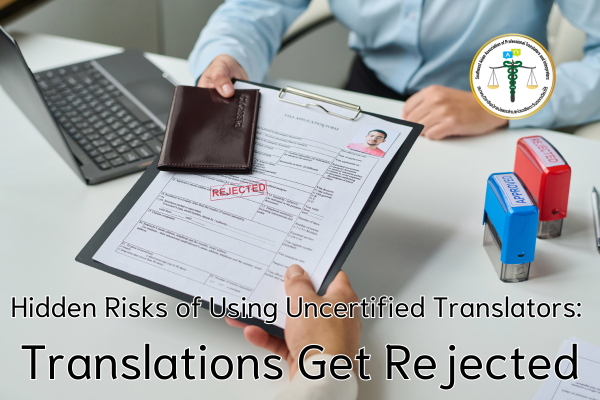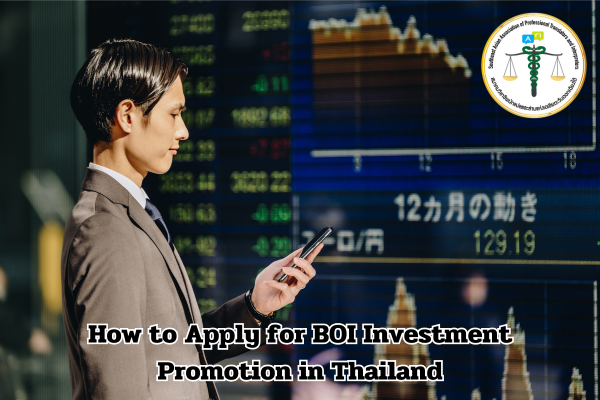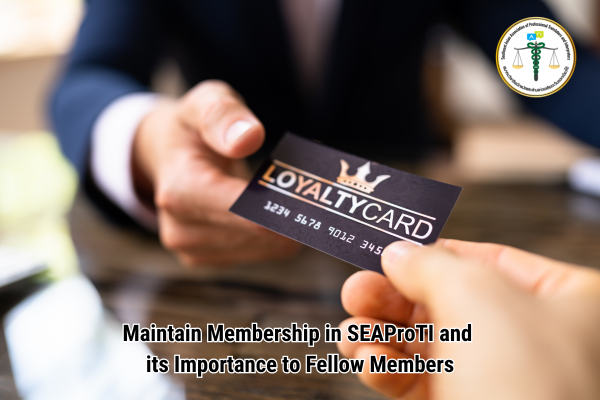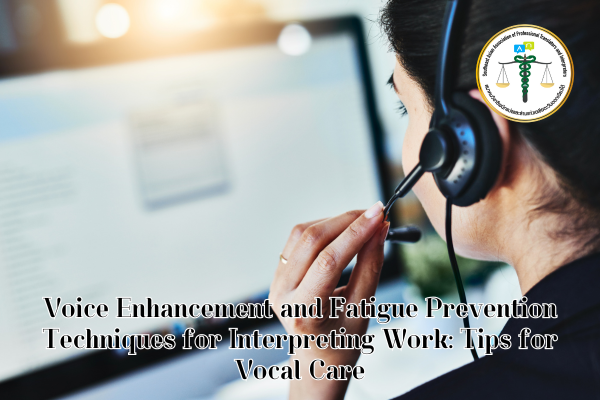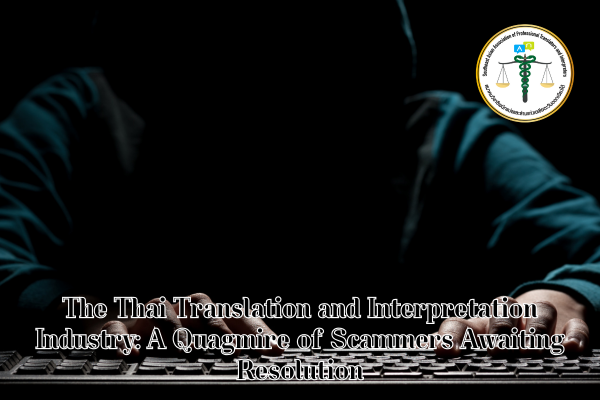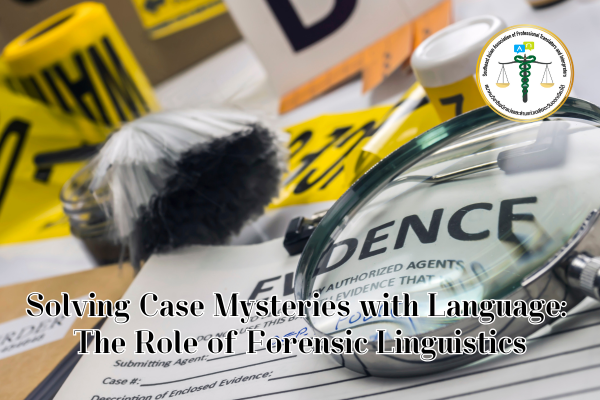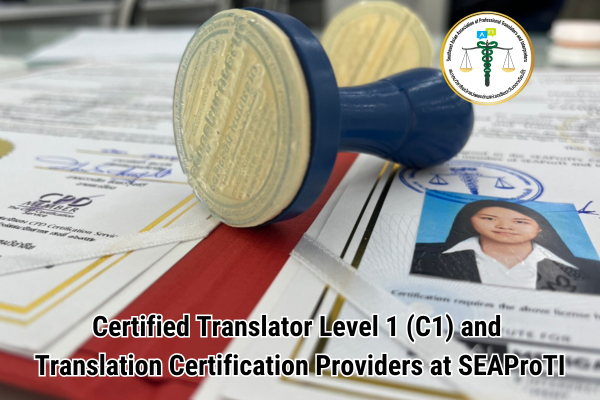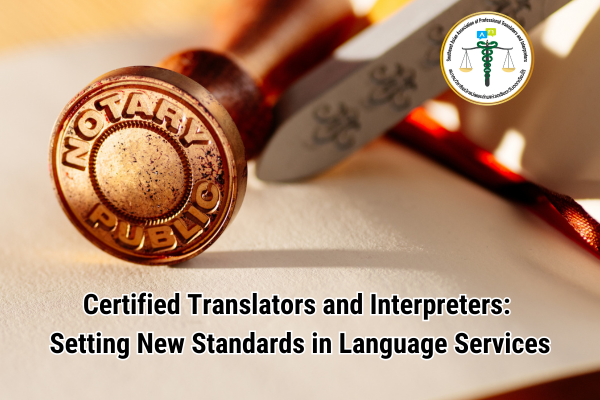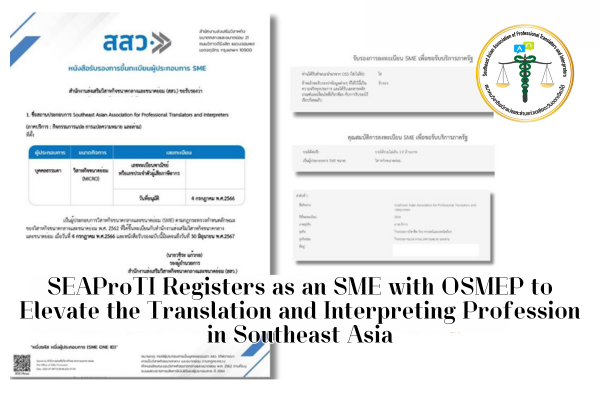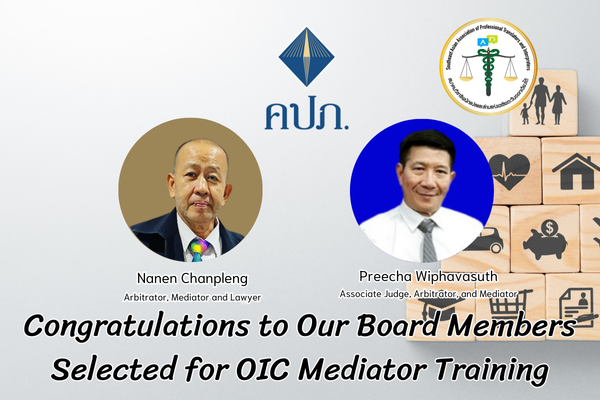Why Your Thai-English Translations Get Rejected Overseas: The Hidden Risks of Uncertified Translators
Many individuals seeking Thai-English translations for official purposes, such as immigration applications, legal documentation, or academic submissions, face an unfortunate reality: their translations are rejected by overseas authorities. This issue often stems from the fact that the translations are completed by individuals in Thailand who lack proper certification or official recognition. While there are many skilled translators in Thailand, the absence of transparency and adherence to international standards leads to significant problems for unsuspecting clients. This article delves into the reasons behind such rejections and provides guidance on how to avoid these pitfalls.
Lack of Proper Certification
One of the primary reasons translations are rejected is that the translator is not certified by recognized bodies. Certification is crucial because it validates the translator’s skills and ensures that they meet the required standards for official documents. In Thailand, certified translators are often recognized by the Ministry of Foreign Affairs (MFA) or professional organizations like SEAProTI. Internationally, bodies such as the American Translators Association (ATA), the Chartered Institute of Linguists (CIOL), or the National Accreditation Authority for Translators and Interpreters (NAATI) provide accreditation that is widely accepted.
Unfortunately, many translators in Thailand operate without these credentials. They accept translation jobs without informing clients of their lack of certification, leaving customers unaware that their documents may not be accepted by embassies, immigration offices, or foreign institutions. This lack of transparency creates significant issues for clients who invest time and money into translations that ultimately fail to meet the required standards.
Importance of Certification for Official Documents
Certification ensures that a translator is proficient in the languages they work with and understands the nuances of official document translation. Certified translators are trained to maintain accuracy, consistency, and cultural appropriateness in their work. More importantly, they are familiar with the formatting and specific requirements of different types of documents, such as birth certificates, police clearance certificates, marriage licenses, and academic transcripts.
For instance, when submitting a police clearance certificate for an immigration application, the receiving authority may require a sworn or notarized translation. Only certified translators with the proper credentials can provide translations that fulfill these legal requirements. Without certification, the translation lacks credibility and is likely to be rejected.
Transparency Issues in the Translation Industry
Another significant issue is the lack of transparency in the Thai translation industry. Some translators advertise their services without clearly stating their qualifications or limitations. They may claim to offer “official” translations without having the necessary certification or approval from relevant authorities. Clients, especially those unfamiliar with the complexities of official translation requirements, may unknowingly hire these translators, assuming their work will be accepted overseas.
In addition, some translators fail to inform clients about the specific requirements of the receiving country. Different countries and institutions have varying standards for translations. For example, a translation accepted in the United States might not meet the requirements in Canada or the United Kingdom. Certified translators are usually aware of these differences and can guide clients accordingly, while uncertified translators often lack this knowledge.
Common Problems in Uncertified Translations
Uncertified translations frequently fall short in several areas, leading to their rejection:
-
Errors in Language and Terminology: Translating official documents requires a deep understanding of both source and target languages, as well as the specific terminology used in legal, academic, or governmental contexts. Uncertified translators may produce translations with inaccuracies, which can lead to misunderstandings or misinterpretations.
-
Incorrect Formatting: Official documents often have strict formatting requirements. For instance, the layout of a translated birth certificate must match the original document, including headers, stamps, and signatures. Uncertified translators may not adhere to these standards, resulting in a translation that appears unprofessional or incomplete.
-
Lack of Legal Recognition: Many countries require translations to be notarized or sworn by a certified translator. Without proper credentials, the translator cannot provide these legal assurances, rendering the translation invalid for official purposes.
-
Inconsistencies in Style and Tone: Official documents must maintain a consistent style and tone to preserve their authenticity. Uncertified translators may fail to achieve this consistency, which can undermine the document’s credibility.
Consequences of Rejected Translations
When a translation is rejected, the consequences can be frustrating and costly. Clients may need to start the process over, delaying important applications or procedures. For example, a rejected translation of a police clearance certificate can delay visa applications, potentially jeopardizing travel plans, job offers, or academic enrollments. Additionally, clients may incur extra expenses to have the documents retranslated by a certified professional, compounding the frustration.
How to Avoid Rejections
To ensure that your Thai-English translation is accepted overseas, it is essential to take the following steps:
-
Verify the Translator’s Credentials: Always ask for proof of certification before hiring a translator. Look for certifications from recognized bodies such as the MFA in Thailand or international organizations like ATA, CIOL, or NAATI. Certified translators often display their credentials on their websites or promotional materials.
-
Understand the Requirements of the Receiving Country: Before commissioning a translation, research the specific requirements of the country or institution where the document will be submitted. Some countries require notarized translations or sworn translations by a translator officially recognized by their government.
-
Request a Sample or Portfolio: A professional translator should be able to provide samples of their work or a portfolio demonstrating their experience with similar documents. Reviewing their past work can give you confidence in their ability to meet your needs.
-
Use Recommended Translators: Many embassies, immigration offices, and institutions provide lists of approved or recommended translators. Choosing a translator from these lists ensures that your translation meets the required standards.
-
Confirm Formatting and Legal Compliance: Ensure that the translator is familiar with the formatting and legal requirements for the specific type of document you need translated. Discuss these details upfront to avoid misunderstandings.
The Role of Professionalism in Translation
Professionalism is a cornerstone of quality translation services. Certified translators not only possess the necessary skills and knowledge but also adhere to ethical standards that prioritize transparency and client satisfaction. They are upfront about their qualifications and take the time to understand the client’s needs and the requirements of the receiving authority.
In contrast, uncertified translators who prioritize quick profits over quality and accuracy do a disservice to their clients. By failing to meet the required standards, they risk damaging their reputation and causing significant inconvenience to those who rely on their services.
Conclusion
Thai-English translations play a crucial role in facilitating international communication and compliance with legal or procedural requirements. However, not all translators are equipped to handle the demands of official document translation. The lack of proper certification and transparency in the Thai translation industry often leads to the rejection of translations overseas, creating unnecessary stress and expense for clients.
To avoid these issues, it is essential to work with certified translators who have the credentials, experience, and professionalism needed to deliver accurate and reliable translations. By taking the time to verify qualifications, understand the requirements of the receiving country, and choose a reputable translator, clients can ensure that their documents will be accepted and their goals achieved. Investing in quality translation services is not just a matter of convenience—it is a critical step in ensuring success in international endeavors.
About SEAProTI’s certified translators, translation certification providers, and certified interpreters:
The Southeast Asian Association of Professional Translators and Interpreters (SEAProTI) has officially announced the criteria and qualifications for individuals to register as “Certified Translators,” “Translation Certification Providers,” and “Certified Interpreters” under the association’s regulations. These guidelines are detailed in Sections 9 and 10 of the Royal Thai Government Gazette, issued by the Secretariat of the Cabinet under the Office of the Prime Minister of the Kingdom of Thailand, dated July 25, 2024, Volume 141, Part 66 Ng, Page 100.
To read the full publication, visit: the Royal Thai Government Gazette
ทำไมการแปลเอกสารไทย-อังกฤษของคุณถึงถูกปฏิเสธในต่างประเทศ: ความเสี่ยงที่ซ่อนอยู่จากนักแปลที่ไม่ได้รับการรับรอง
หลายคนที่ต้องการแปลเอกสารไทย-อังกฤษเพื่อใช้ในงานทางการ เช่น การยื่นขอวีซ่า การดำเนินเอกสารทางกฎหมาย หรือการส่งเอกสารสมัครเรียน มักประสบปัญหาเมื่อการแปลของพวกเขาถูกปฏิเสธจากหน่วยงานในต่างประเทศ ปัญหานี้มักเกิดจากการแปลที่ทำโดยนักแปลในประเทศไทยที่ขาดการรับรองหรือไม่ได้รับการยอมรับอย่างเป็นทางการ แม้จะมีนักแปลที่มีฝีมือจำนวนมากในประเทศไทย แต่การขาดความโปร่งใสและการไม่ปฏิบัติตามมาตรฐานสากลมักก่อให้เกิดปัญหาใหญ่กับลูกค้าที่ไม่รู้เท่าทัน บทความนี้จะพาคุณสำรวจสาเหตุที่การแปลถูกปฏิเสธ และวิธีหลีกเลี่ยงปัญหาเหล่านี้
ขาดการรับรองอย่างถูกต้อง
หนึ่งในสาเหตุหลักที่การแปลถูกปฏิเสธคือ นักแปลไม่ได้รับการรับรองจากองค์กรที่เป็นที่ยอมรับ การรับรองมีความสำคัญเพราะเป็นการยืนยันความสามารถของนักแปลและรับประกันว่างานแปลของพวกเขาจะเป็นไปตามมาตรฐานที่กำหนด สำหรับประเทศไทย นักแปลที่ได้รับการรับรองมักจะผ่านการรับรองจากกระทรวงการต่างประเทศ (MFA) หรือองค์กรวิชาชีพอย่าง SEAProTI ส่วนในระดับสากล องค์กรอย่าง American Translators Association (ATA), Chartered Institute of Linguists (CIOL) หรือ National Accreditation Authority for Translators and Interpreters (NAATI) เป็นที่ยอมรับอย่างกว้างขวาง
อย่างไรก็ตาม นักแปลหลายคนในประเทศไทยทำงานโดยไม่มีใบรับรองเหล่านี้ พวกเขารับงานแปลโดยไม่แจ้งให้ลูกค้าทราบว่าตนไม่ได้รับการรับรอง ส่งผลให้ลูกค้าไม่รู้ว่าการแปลอาจไม่ผ่านการยอมรับจากสถานทูต หน่วยงานตรวจคนเข้าเมือง หรือองค์กรต่างประเทศอื่น ๆ การขาดความโปร่งใสนี้สร้างปัญหาอย่างมากให้กับลูกค้าที่เสียทั้งเวลาและเงินในการแปลที่ไม่ผ่านมาตรฐาน
ความสำคัญของการรับรองสำหรับเอกสารทางการ
การรับรองช่วยให้มั่นใจได้ว่านักแปลมีความเชี่ยวชาญในภาษาที่พวกเขาใช้ทำงาน และเข้าใจความละเอียดอ่อนของการแปลเอกสารทางการ นักแปลที่ได้รับการรับรองได้รับการฝึกอบรมให้รักษาความถูกต้อง ความสม่ำเสมอ และความเหมาะสมทางวัฒนธรรมในงานแปลของพวกเขา ที่สำคัญกว่านั้น พวกเขาคุ้นเคยกับรูปแบบและข้อกำหนดเฉพาะของเอกสารประเภทต่าง ๆ เช่น สูติบัตร หนังสือรับรองประวัติอาชญากรรม ทะเบียนสมรส และทรานสคริปต์การศึกษา
ตัวอย่างเช่น ในกรณีของการยื่นหนังสือรับรองประวัติอาชญากรรมเพื่อขอวีซ่า หน่วยงานที่รับเอกสารอาจกำหนดให้การแปลนั้นเป็นแบบสาบานหรือได้รับการรับรองโดยนักแปลที่มีใบอนุญาตเท่านั้น หากไม่มีการรับรอง การแปลจะขาดความน่าเชื่อถือและอาจถูกปฏิเสธ
ปัญหาความโปร่งใสในอุตสาหกรรมการแปล
อีกปัญหาสำคัญคือความขาดความโปร่งใสในอุตสาหกรรมการแปลในประเทศไทย นักแปลบางคนโฆษณาบริการของตนโดยไม่ระบุคุณสมบัติหรือข้อจำกัดอย่างชัดเจน พวกเขาอาจอ้างว่าให้บริการแปล “ทางการ” โดยไม่ได้รับการรับรองหรืออนุมัติจากหน่วยงานที่เกี่ยวข้อง ลูกค้า โดยเฉพาะผู้ที่ไม่คุ้นเคยกับข้อกำหนดในการแปลเอกสารทางการ มักจะจ้างนักแปลเหล่านี้โดยเข้าใจผิดว่างานของพวกเขาจะได้รับการยอมรับในต่างประเทศ
นอกจากนี้ นักแปลบางคนยังล้มเหลวในการแจ้งให้ลูกค้าทราบเกี่ยวกับข้อกำหนดเฉพาะของประเทศผู้รับเอกสาร แต่ละประเทศและสถาบันมีมาตรฐานที่แตกต่างกันในการยอมรับงานแปล ตัวอย่างเช่น การแปลที่ยอมรับในสหรัฐอเมริกาอาจไม่ผ่านเกณฑ์ในแคนาดาหรือสหราชอาณาจักร นักแปลที่ได้รับการรับรองมักจะตระหนักถึงความแตกต่างเหล่านี้และสามารถแนะนำลูกค้าได้อย่างเหมาะสม ขณะที่นักแปลที่ไม่ได้รับการรับรองมักขาดความรู้ในเรื่องนี้
ปัญหาทั่วไปในงานแปลที่ไม่ได้รับการรับรอง
งานแปลที่ไม่ได้รับการรับรองมักมีปัญหาหลายประการ ซึ่งนำไปสู่การถูกปฏิเสธ:
-
ข้อผิดพลาดทางภาษาและคำศัพท์: การแปลเอกสารทางการต้องอาศัยความเข้าใจลึกซึ้งทั้งในภาษาแหล่งที่มาและภาษาปลายทาง รวมถึงคำศัพท์เฉพาะในบริบททางกฎหมาย การศึกษา หรือรัฐบาล นักแปลที่ไม่ได้รับการรับรองอาจแปลผิดพลาด ซึ่งนำไปสู่ความเข้าใจผิดหรือการตีความที่ไม่ถูกต้อง
-
รูปแบบเอกสารที่ไม่ถูกต้อง: เอกสารทางการมักมีข้อกำหนดด้านรูปแบบที่เข้มงวด ตัวอย่างเช่น การแปลสูติบัตรต้องมีรูปแบบที่ตรงกับเอกสารต้นฉบับ รวมถึงหัวเรื่อง ตราประทับ และลายเซ็น นักแปลที่ไม่ได้รับการรับรองอาจไม่ปฏิบัติตามข้อกำหนดเหล่านี้ ทำให้งานแปลดูไม่เป็นมืออาชีพหรือไม่สมบูรณ์
-
ขาดการยอมรับทางกฎหมาย: หลายประเทศกำหนดให้การแปลต้องได้รับการรับรองหรือสาบานจากนักแปลที่มีใบอนุญาต หากไม่มีใบรับรอง นักแปลจะไม่สามารถให้การยืนยันทางกฎหมายได้ ทำให้งานแปลเป็นโมฆะสำหรับการใช้งานทางการ
-
ความไม่สอดคล้องในสไตล์และโทน: เอกสารทางการต้องรักษาความสม่ำเสมอในสไตล์และโทนเพื่อรักษาความน่าเชื่อถือ นักแปลที่ไม่ได้รับการรับรองอาจไม่สามารถทำให้เกิดความสม่ำเสมอในจุดนี้ได้ ซึ่งอาจทำลายความน่าเชื่อถือของเอกสาร
ผลกระทบจากการถูกปฏิเสธงานแปล
เมื่อการแปลถูกปฏิเสธ ผลกระทบที่เกิดขึ้นอาจสร้างความยุ่งยากและเสียค่าใช้จ่ายให้กับลูกค้า ลูกค้าอาจต้องเริ่มกระบวนการใหม่ทั้งหมด ทำให้เกิดความล่าช้าในขั้นตอนสำคัญ เช่น การยื่นขอวีซ่า การสมัครงาน หรือการสมัครเรียน ตัวอย่างเช่น การแปลหนังสือรับรองประวัติอาชญากรรมที่ถูกปฏิเสธ อาจทำให้การยื่นขอวีซ่าล่าช้า ซึ่งอาจส่งผลกระทบต่อแผนการเดินทาง ข้อเสนองาน หรือการลงทะเบียนเรียน นอกจากนี้ ลูกค้าอาจต้องเสียค่าใช้จ่ายเพิ่มเติมในการแปลเอกสารใหม่โดยนักแปลที่ได้รับการรับรอง ซึ่งเพิ่มความยุ่งยาก
วิธีหลีกเลี่ยงการถูกปฏิเสธ
เพื่อให้การแปลเอกสารไทย-อังกฤษของคุณได้รับการยอมรับในต่างประเทศ คุณควรดำเนินการดังนี้:
-
ตรวจสอบคุณสมบัติของนักแปล: ขอหลักฐานการรับรองจากนักแปลก่อนว่าจ้าง มองหาใบรับรองจากหน่วยงานที่ได้รับการยอมรับ เช่น MFA ในประเทศไทย หรือองค์กรระดับสากลอย่าง ATA, CIOL หรือ NAATI นักแปลที่ได้รับการรับรองมักแสดงใบรับรองบนเว็บไซต์หรือสื่อโฆษณาของพวกเขา
-
ศึกษาข้อกำหนดของประเทศผู้รับเอกสาร: ก่อนเริ่มงานแปล ค้นคว้าข้อมูลเกี่ยวกับข้อกำหนดของประเทศหรือสถาบันที่คุณจะยื่นเอกสาร บางประเทศกำหนดให้การแปลต้องได้รับการรับรองหรือสาบานจากนักแปลที่ได้รับการยอมรับ
-
ขอตัวอย่างหรือผลงานที่ผ่านมา: นักแปลมืออาชีพควรสามารถให้ตัวอย่างงานหรือผลงานที่ผ่านมาเพื่อแสดงประสบการณ์การแปลเอกสารที่คล้ายกัน การตรวจสอบผลงานช่วยเพิ่มความมั่นใจในความสามารถของนักแปล
-
เลือกนักแปลที่ได้รับการแนะนำ: สถานทูต หน่วยงานตรวจคนเข้าเมือง และสถาบันหลายแห่งมักมีรายชื่อนักแปลที่ได้รับการแนะนำ การเลือกนักแปลจากรายชื่อเหล่านี้ช่วยให้มั่นใจได้ว่างานแปลของคุณจะผ่านมาตรฐานที่กำหนด
-
ยืนยันรูปแบบและข้อกำหนดทางกฎหมาย: ตรวจสอบว่านักแปลมีความเข้าใจข้อกำหนดด้านรูปแบบและกฎหมายสำหรับเอกสารที่คุณต้องการแปล พูดคุยรายละเอียดเหล่านี้ล่วงหน้าเพื่อหลีกเลี่ยงความเข้าใจผิด
ความสำคัญของความเป็นมืออาชีพในการแปล
ความเป็นมืออาชีพเป็นหัวใจสำคัญของบริการแปลที่มีคุณภาพ นักแปลที่ได้รับการรับรองไม่เพียงแต่มีความรู้และทักษะที่จำเป็น แต่ยังปฏิบัติตามมาตรฐานจริยธรรมที่เน้นความโปร่งใสและความพึงพอใจของลูกค้า พวกเขาจะให้ข้อมูลที่ชัดเจนเกี่ยวกับคุณสมบัติของตน และใส่ใจในความต้องการของลูกค้า รวมถึงข้อกำหนดของหน่วยงานผู้รับเอกสาร
ในทางกลับกัน นักแปลที่ไม่ได้รับการรับรองซึ่งมุ่งหวังกำไรมากกว่าคุณภาพและความถูกต้อง มักทำให้ลูกค้าต้องเผชิญกับปัญหา เอกสารที่ไม่ได้มาตรฐานอาจทำให้เกิดความเสียหายต่อชื่อเสียงของนักแปลและสร้างความไม่สะดวกอย่างมากให้กับผู้ใช้บริการ
การแปลเอกสารไทย-อังกฤษมีบทบาทสำคัญในการติดต่อสื่อสารระหว่างประเทศ และการปฏิบัติตามข้อกำหนดทางกฎหมายหรือขั้นตอนต่าง ๆ อย่างไรก็ตาม ไม่ใช่นักแปลทุกคนที่พร้อมรับมือกับความต้องการของการแปลเอกสารทางการ การขาดการรับรองและความโปร่งใสในอุตสาหกรรมการแปลในประเทศไทยมักนำไปสู่การปฏิเสธงานแปลในต่างประเทศ สร้างความเครียดและค่าใช้จ่ายที่ไม่จำเป็นให้กับลูกค้า
เพื่อหลีกเลี่ยงปัญหาเหล่านี้ คุณควรเลือกใช้บริการจากนักแปลที่ได้รับการรับรอง ซึ่งมีคุณสมบัติ ประสบการณ์ และความเป็นมืออาชีพที่จำเป็น การลงทุนในบริการแปลที่มีคุณภาพไม่ใช่แค่เรื่องความสะดวก แต่เป็นขั้นตอนสำคัญเพื่อความสำเร็จในเป้าหมายระดับนานาชาติของคุณ
เกี่ยวกับนักแปลรับรอง ผู้รับรองการแปล และล่ามรับรองของสมาคมวิชาชีพนักแปลและล่ามแห่งเอเชียตะวันออกเฉียงใต้
สมาคมวิชาชีพนักแปลและล่ามแห่งเอเชียตะวันออกเฉียงใต้ (SEAProTI) ได้ประกาศหลักเกณฑ์และคุณสมบัติผู้ที่ขึ้นทะเบียนเป็น “นักแปลรับรอง (Certified Translators) และผู้รับรองการแปล (Translation Certification Providers) และล่ามรับรอง (Certified Interpreters)” ของสมาคม หมวดที่ 9 และหมวดที่ 10 ในราชกิจจานุเบกษา ของสำนักเลขาธิการคณะรัฐมนตรี ในสำนักนายกรัฐมนตรี แห่งราชอาณาจักรไทย ลงวันที่ 25 ก.ค. 2567 เล่มที่ 141 ตอนที่ 66 ง หน้า 100 อ่านฉบับเต็มได้ที่: นักแปลรับรอง ผู้รับรองการแปล และล่ามรับรอง


